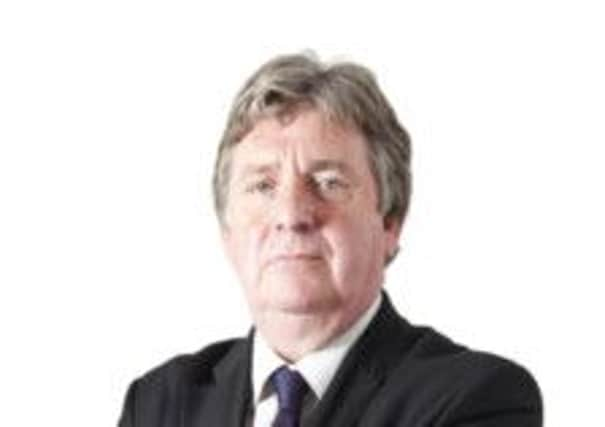Comment: West Coast rail | Rolls-Royce


It has not been Whitehall’s finest hour, and the award to Sir Richard Branson’s Virgin Trains, jointly run with Perth-based Stagecoach, eases some of the lingering embarrassment.
Two years ago Virgin Trains lost out to rival FirstGroup in the battle for a new 13-year franchise. But amid a threat by Branson to sue, the Department of Transport admitted the bidding process had indeed been flawed, if not quite drawn up on the back of a fag packet.
Advertisement
Hide AdAdvertisement
Hide AdThe government scrapped the award to FirstGroup, much to the latter’s public chagrin and at a cost of more than £50 million to the taxpayer, and gave the franchise back to Branson. That temporary renewal until November this year has now been extended to March 2017.
With a pleasing symmetry for taxpayers, we will get our money back from the fiasco within the first year of the new franchise as Virgin Trains is paying an extra £57m annually to the public purse for winning the Whitehall lottery.
Seldom does the taxpayer get its money back so speedily when things go pear-shaped at the interface of government and business.
There’s also welcome news for passengers. The rail operator, which has run the line since 1997, has promised an extra 2,100 seats per day by converting one first class carriage to standard class on 21 of its trains. A democracy dividend.
Virgin Trains will also provide free superfast WiFi on its Pendolino and Super Voyager trains. Of course, nothing is certain in life apart from death, taxes, and debates about Britain’s privatised rail industry (a tracks and wheels separation that other countries have unaccountably shunned).
Critics will say, for instance, that Virgin Trains has increased fares 245 per cent over the past 17 years, and that rail franchises are a gravy train. Publicly owned east coast has returned a lot more cash to the taxpayer in the past five years than the west coast operator.
But, remembering the amateurish mire the ownership of this vital rail artery between Scotland and London found itself two years ago, the outcome for both taxpayers and passengers looks better than many would have considered likely at the time.
Rolls-Royce turns off acquisition engines
IT IS fascinating how often in the business world grandiosity gives way to chastened pragmatism. Grand strategies with longer timeframes for financial returns are replaced by rewarding shareholders with money now. Less fuss, less uncertainty and few people don’t like getting financial rewards upfront.
Advertisement
Hide AdAdvertisement
Hide AdSo it is that aero-engine maker Rolls Royce has launched a £1 billion share buyback. The move virtually puts the kibosh on any grand acquisition strategy to reduce the group’s dependence on a Ministry of Defence and Pentagon in retrenchment mode.
While it is debatable whether such a rowing back on this strategy is wise in the medium-term, Rolls Royce boss John Rishton softened the edges of the debate by repeating financial guidance for 2014 and 2015.
With Rolls-Royce still facing a Serious Fraud Office probe into corruption claims, it is also unsurprising that investors might welcome some cooling engines’ time at the company.
The shares rose 8 per cent yesterday.